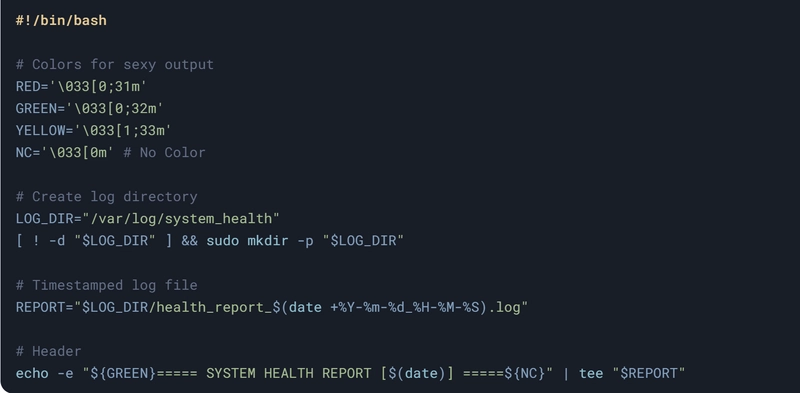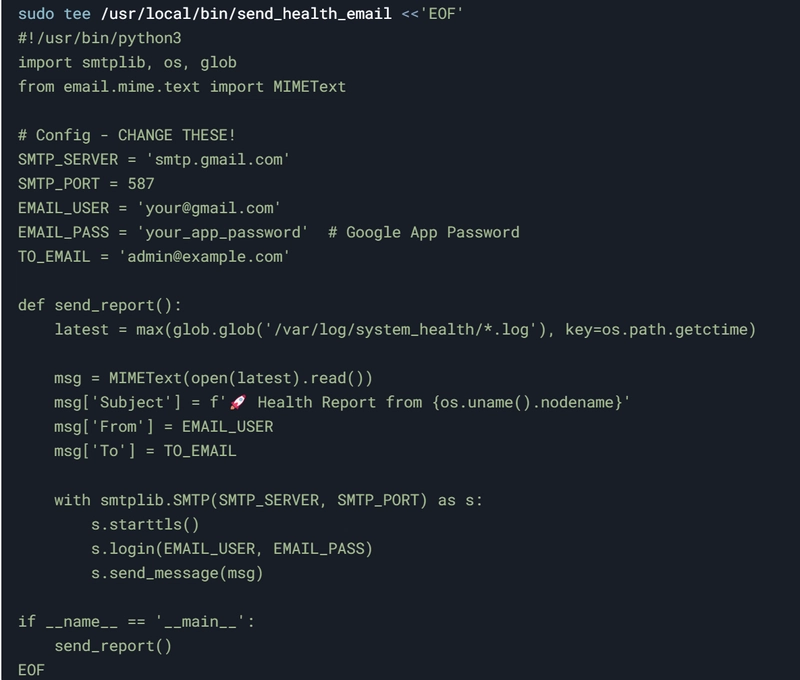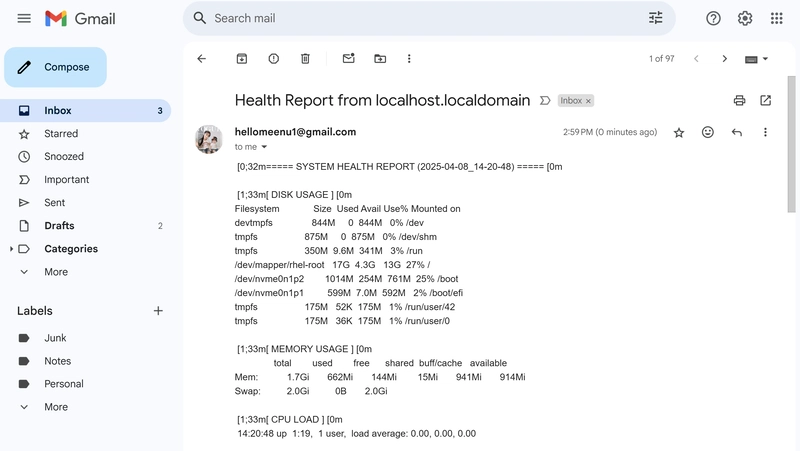This content originally appeared on DEV Community and was authored by Rajpreet Gill
 Introduction
Introduction
This guide will help you create a professional system health monitor that:
 Checks critical server metrics
Checks critical server metrics
 Generates beautiful reports
Generates beautiful reports
 Sends email alerts with actionable insights
Sends email alerts with actionable insights
 Runs automatically on schedule
Runs automatically on schedule
 Prerequisites
Prerequisites
 Any Linux system (Tested on RHEL, Ubuntu, Raspberry Pi)
Any Linux system (Tested on RHEL, Ubuntu, Raspberry Pi)
 Terminal access with sudo privileges
Terminal access with sudo privileges
 Python 3 (for email functionality)
Python 3 (for email functionality)
 Optional: ChatGPT/Gemini access for AI enhancements
Optional: ChatGPT/Gemini access for AI enhancements
 Step 1: Create the Health Check Script
Step 1: Create the Health Check Script
AI-Generated Base Script
Disk Health Check
Memory Check
CPU Load
 Step 2: Add Email Notifications
Step 2: Add Email Notifications
Python Email Script
NOTE: Create Gmail App Password
Go to: https://myaccount.google.com/apppasswords
Select “Mail” and “Other (Custom Name)”
Name it “RHEL Healthcheck”
Copy the generated 16-digit password
Paste it in the script above replacing your_app_password
I connected with my Gmail as below Screenshot:
Step 3. Make the Script Executable
 Step 4: Automate with Cron
Step 4: Automate with Cron
3.1 Daily Reports
3.2 Critical Alerts
 Step 4: Enhancements
Step 4: Enhancements
4.1 AI-Powered Recommendations
4.2 HTML Reports
 Final Output Examples
Final Output Examples
Email Subject Lines:
 [NORMAL] Server Health – CPU 15% | Disk 60%
[NORMAL] Server Health – CPU 15% | Disk 60%
 [ALERT] High Memory Usage – 92% used!
[ALERT] High Memory Usage – 92% used!
Sample AI Analysis:
 Pro Tips
Pro Tips
Test First: Run /usr/local/bin/healthcheck manually
Debug: Check /var/log/syslog for cron errors
Slack Alerts: Replace email with Slack webhooks for team notifications
Troubleshooting Steps:
#30DaysLinuxChallenge #CloudWhisler
DevOps #Linux #RHCSA #Opensource #AWS #CloudComputing
Catch out by My LinkedIn profile
https://www.linkedin.com/in/rajpreet-gill-4569b4161/
This content originally appeared on DEV Community and was authored by Rajpreet Gill














